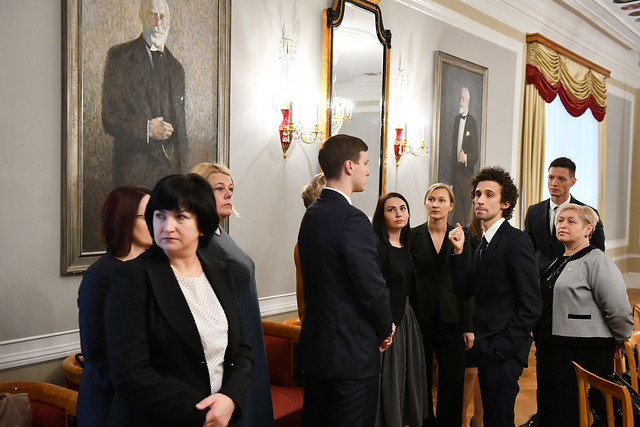Representatives of both associations explained their take on healthcare salary issue, healthcare workforce renumeration schemes created in other Baltic countries, excessive workload of interns and nurses, as well as failure to deliver political promises.
President thanked the associations for detailed insight into these problems and constructive proposals on how to improve the health care system in the long run voiced by associations in discussions with policymakers. ‘We can compare healthcare system with a patient who has been diagnosed with numerous health problems, multiple co-morbidities is the medical term to describe that,’ said the President to association representatives.
‘This is a multifaceted problem. Additional budget allocation would be contingent upon greater transparency, fairer pay for all health care professionals and society being given open, accessible and understandable information about the use of funding. Unofficial payments should no longer be tolerated. I fully subscribe to what the junior doctors say about unofficial payments being detrimental to the professional integrity and image of honest doctors who are not accepting such unofficial ‘pay’,’ stressed the President. He also underlined that budget appropriations should entail modernisation of health care governance and hospitals should also strive for more modern hospital management approaches, greater financial transparency, honest relationship based on professional courtesy.
‘I believe that our society should listen to what junior doctors and nurses have to say. They are actively trying to raise people’s awareness on how to constructively and systematically improve the healthcare sector to justify the need to prioritise healthcare funding issues in the context of budget planning process. Politicians should be aware that the intended strike on 7 November shows sector’s disaffection with empty promises and potential negative consequences for those who have been giving these empty promises for a long time,’ concluded the President.





